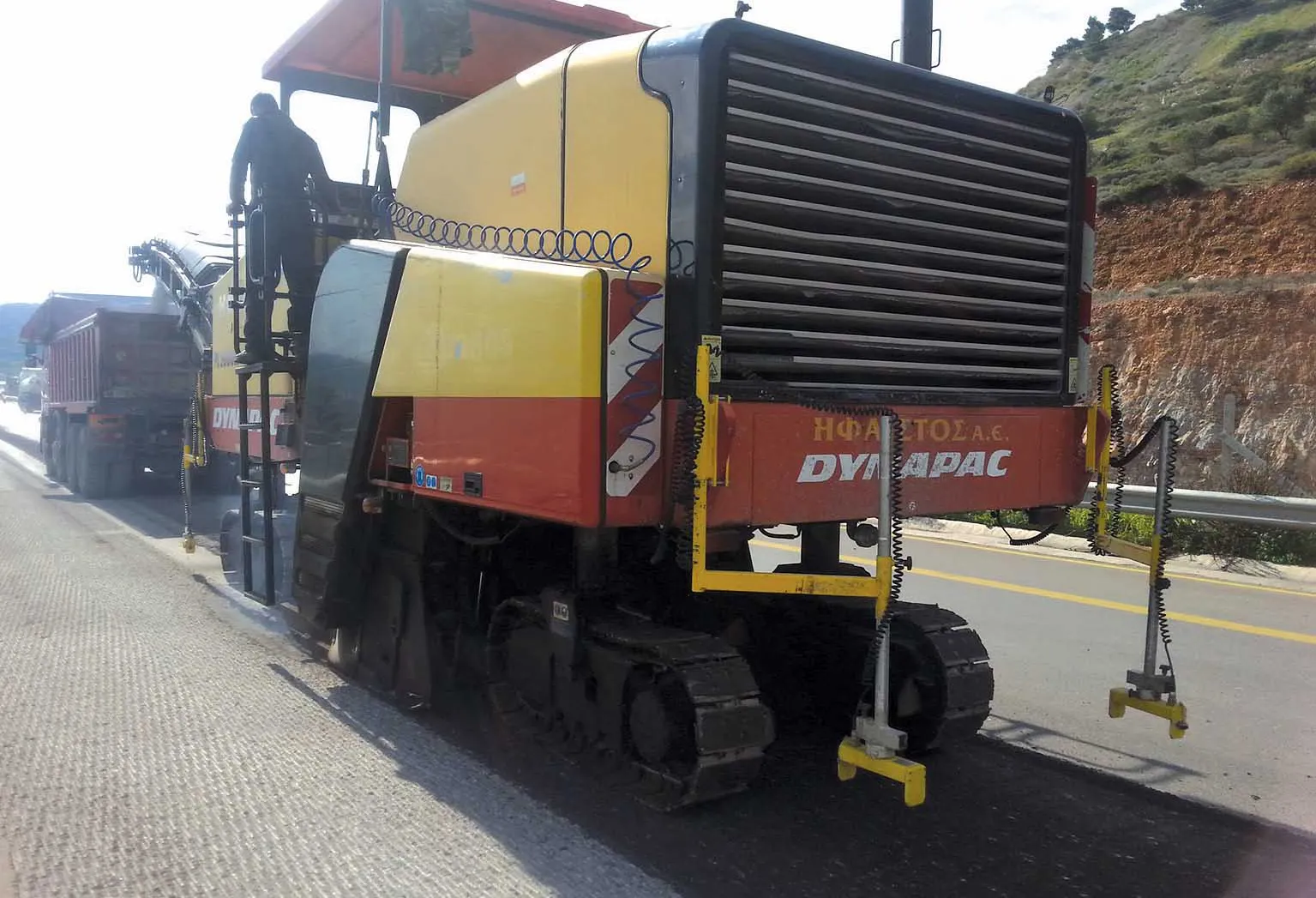There “will never be sufficient funds for all planned road activities” says Ben Gericke, transport specialist at The World Bank. The road maintenance industry is going to have to use the best possible contract strategy to win the investment it needs. Speaking at the PPRS Paris 2015 pavement preservation and recycling summit, Gericke said that the best way for the global highway construction and road maintenance sector was to get its fair share of any national spending plan was to turn to performance-based c
February 27, 2015
Read time: 4 mins
There “will never be sufficient funds for all planned road activities” says Ben Gericke, transport specialist at The World Bank. The road maintenance industry is going to have to use the best possible contract strategy to win the investment it needs.
Speaking at the PPRS Paris 2015 pavement preservation and recycling summit, Gericke said that the best way for the global highway construction and road maintenance sector was to get its fair share of any national spending plan was to turn to performance-based contracts. Highway authorities increasingly need to reassure their funding partners that they were getting value for money.
He is convinced that the secret of success is to “deliver good asset management in the road sector through performance-based contracting (PBC).” Why? Because market research and experience at The World Bank have both shown that this is the best way forward.
According to Gericke, “a World Bank Review in the late eighties recommended that bank projects should outsource both works and consultancy services based on the perceived value for money gained when compared to in-house activities.” The “contracting methodology was based on FIDIC Red Book (and) in the 1990s several countries commenced with performance-based maintenance contracting.”
The results were positive and today more and more governments have turned to performance-based contracting. And, as the years have gone by, “contracting methodology has developed to include the initial improvement and rehabilitation works as part of PBC,” says Gericke. He told PPRS Paris 2015 that the “latest OPRC (output and performance-based road contracts now follow a design-build-operate-maintain-transfer” approach.
In 20112332 World Bank reviewed the use of OPRC to develop guidance on the use of the different approaches and the lessons learned were “a significant improvement in value for money and general savings of between 10-40% when compared to traditional contracts.” Gericke also believes that the PBC approach leads to “improved understanding of asset management principles (and better) levels of service.” PBC contracting has also “reduced administration costs with a smaller number of contracts.” There is also “reduced opportunities for corruption, as construction risk is transferred to the contractor.” The World Bank has also noticed that “improved workmanship as a result of the contractor being financially liable for defects.”
The end result is “a more consistent level of service being delivered to the road user,” Gericke argues, and “a better focus on innovation and the sharing of risk.” The challenges include making sure you identify all the risks upfront, that the correct payment model is in place and that all parties involved have agreed what the minimum levels of service should be.”
The process is robust too. “Very few PBCs fail once implemented …although not all deliver the full benefits initially realised),” says Gericke. “Most ‘failures’ of PBC are actually situations where the implementation did not occur at all.” To make it work, “a sound understanding of risk, the allocation of risk and the definition of risk boundaries is essential (and) to make it through the full PBC process, the project requires strong champions in the road agency, the ministry of finance and the bank or other lending institution.”
Be flexible too. “The existing sample OPRC bidding documents seldom get used without substantial change,” says Gericke, and “procurement of PBC – both for consultant support and the physical works – on a lowest price basis is not in the best interest of the PBC.” He worries that “road authorities often struggle to recognise the value-for-money PBCs and good asset management have to offer.”
Agreeing what a successful outcome will look like before you start, is also important. “The retention of asset value is a key challenge,” Gericke warns. “How will the end-of-contract road condition be defined and measured?”
With most OPRC contracts, the road owner is paying for a service to be provided and the contractor has to ensure that the road user gets a certain level of service. This level of service is often defined in terms of usability, travel speeds, road surface conditions, safety features, roadside assistance, and so on. Specifications included in a typical contract could include describing the level of service expected for every road in the network.
A number of studies have shown that the supervision of performance-based contracts is very different from the traditional way in which a project was supervised because a PBC project usually focuses on fewer performance criteria. It is also much cheaper to supervise a PBC scheme … instead of 7-10 % of the contract value, it will only be around 3-5 %. For a network of 450 km, supervision should not take more than 3 to 4 days every month.
Contractors like PBC projects because they get paid a fixed monthly amount if they meet the agreed performance criteria, and usually they are free to decide what to do, as well as when, where and how.
Speaking at the PPRS Paris 2015 pavement preservation and recycling summit, Gericke said that the best way for the global highway construction and road maintenance sector was to get its fair share of any national spending plan was to turn to performance-based contracts. Highway authorities increasingly need to reassure their funding partners that they were getting value for money.
He is convinced that the secret of success is to “deliver good asset management in the road sector through performance-based contracting (PBC).” Why? Because market research and experience at The World Bank have both shown that this is the best way forward.
According to Gericke, “a World Bank Review in the late eighties recommended that bank projects should outsource both works and consultancy services based on the perceived value for money gained when compared to in-house activities.” The “contracting methodology was based on FIDIC Red Book (and) in the 1990s several countries commenced with performance-based maintenance contracting.”
The results were positive and today more and more governments have turned to performance-based contracting. And, as the years have gone by, “contracting methodology has developed to include the initial improvement and rehabilitation works as part of PBC,” says Gericke. He told PPRS Paris 2015 that the “latest OPRC (output and performance-based road contracts now follow a design-build-operate-maintain-transfer” approach.
In 2011
The end result is “a more consistent level of service being delivered to the road user,” Gericke argues, and “a better focus on innovation and the sharing of risk.” The challenges include making sure you identify all the risks upfront, that the correct payment model is in place and that all parties involved have agreed what the minimum levels of service should be.”
The process is robust too. “Very few PBCs fail once implemented …although not all deliver the full benefits initially realised),” says Gericke. “Most ‘failures’ of PBC are actually situations where the implementation did not occur at all.” To make it work, “a sound understanding of risk, the allocation of risk and the definition of risk boundaries is essential (and) to make it through the full PBC process, the project requires strong champions in the road agency, the ministry of finance and the bank or other lending institution.”
Be flexible too. “The existing sample OPRC bidding documents seldom get used without substantial change,” says Gericke, and “procurement of PBC – both for consultant support and the physical works – on a lowest price basis is not in the best interest of the PBC.” He worries that “road authorities often struggle to recognise the value-for-money PBCs and good asset management have to offer.”
Agreeing what a successful outcome will look like before you start, is also important. “The retention of asset value is a key challenge,” Gericke warns. “How will the end-of-contract road condition be defined and measured?”
With most OPRC contracts, the road owner is paying for a service to be provided and the contractor has to ensure that the road user gets a certain level of service. This level of service is often defined in terms of usability, travel speeds, road surface conditions, safety features, roadside assistance, and so on. Specifications included in a typical contract could include describing the level of service expected for every road in the network.
A number of studies have shown that the supervision of performance-based contracts is very different from the traditional way in which a project was supervised because a PBC project usually focuses on fewer performance criteria. It is also much cheaper to supervise a PBC scheme … instead of 7-10 % of the contract value, it will only be around 3-5 %. For a network of 450 km, supervision should not take more than 3 to 4 days every month.
Contractors like PBC projects because they get paid a fixed monthly amount if they meet the agreed performance criteria, and usually they are free to decide what to do, as well as when, where and how.







